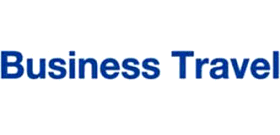 Corporate travel gallops ahead
Corporate travel gallops ahead
During the pandemic, industry-watchers forecast that corporate travel would take a long, long time to come back.
In South Africa, where the vast majority of international air tickets purchased up to early 2020 were for business travel of one sort or another, this was bad news indeed. Some highly experienced agents who had worked in corporate travel agencies for years, gave up hope that their lives would return to normal and left the industry to seek greener pastures.
But those predictions of a slow trudge uphill might just have been turned on their heads. Travel News
spoke to some experienced retail travel bosses at three different
agencies, and learned that corporate business is flooding back into
agencies, sometimes to the point of overwhelming their staff.
But it might not remain so, said at least one of them, sounding a sobering note.
“About 70% of our corporate client base has begun to travel again and, overall, they are travelling at about 50-60% of what was the norm before the pandemic. Prior to the pandemic, our agency’s business was always 85% corporate travel,” said Durban-based Linda Edwards, Operations Director of XL Turners Travel. Government business was coming back, and a large metropolitan municipality client had started booking trips again, said Edwards.
Rachael Penaluna, who heads up Sure Maritime Travel in Port Elizabeth, was extremely upbeat. “Corporate travel is certainly not all doom and gloom,” she said.
“We thought it was going to take a long time to come back, but in mid-February the picture changed, and now corporate travel far outstrips leisure in our agency. We’re doing the same amount, if not more corporate business as we did in March 2019.
“Historically, our agency split was 70% corporate, 30% leisure. Currently, and looking at forward bookings into May and June, it is 90% corporate business and 10% leisure. And, interestingly enough, the 10% leisure we are currently writing is more than the previous 30% comprising leisure bookings,” she said.
“We are currently preparing an incentive trip for a client with a hub in the Far East. They have always been prolific travellers – all over Africa, Far East, Australia and the US. In February 2020, all travel, even local, was embargoed. Now they are sending over 500 people on an incentive. The client’s industry has boomed over the past two years, and they have told me that, despite the convenience of Teams meetings and Zoom meetings, people still want human contact, live discussions, idea-sharing, sitting down to a meal together. My client says Teams would never replace that.
“Academic travel is really starting to move,” added Penaluna. “I have five groups from a university, totalling around 100 people, travelling to academic institutions in five different foreign destinations before the end of July. The clear consensus from the university was that it was vital that their staff and students travel. The university says the fact that no travel or very little travel has taken place, has put the academics on the back foot.
“It’s still difficult to say if and when it will end. But I’m certainly expecting it to last well into 2023,” said Penaluna.
“There is a massive catch-up happening,” said Jonathan Gerber, CEO of TAG.
“In business, people haven’t visited their clients for around two years. Since the PCR requirement for re-entering South Africa fell away, there has been a big spike in travel, both corporate and leisure.”
But Gerber advised caution.
“This could be short-lived. Until all testing of travellers has fallen away, testing will remain a major threat to corporate travel and incentives. The last thing corporates want is the liability that comes with one of their travellers finding themselves in a foreign country and then testing positive in an arrival COVID test at a foreign airport. Corporates remain cautious.
“Also, the idea of combining a business trip with a family leisure trip, which had become popular before COVID, now falls away because young children cannot be vaccinated and require tests to get into many countries.
“There will be peaks and troughs for a while. No one knows how long the current boom will last,” said Gerber. “Are we back to 2019 levels? No. Are things improving? Yes!”
Morné du Preez, CEO of Tourvest Travel Services said: “We continue to see corporate clients return to their offices, even if only in a staggered approach, and therefore expect an increase in both domestic and international travel. After the November hiccup we all faced, there was an almost immediate return and increase to international bookings, which is certainly a reflection of how quickly things can change. Should this continue to increase, we anticipate corporate and government travel to reach almost 70-80% of 2019 numbers by the end of 2022.”
LIFT, which just last year introduced its Premium offering (equivalent to business class, said LIFT), has reported a pick-up in domestic travel, in a blend of business and leisure travellers. “Our stats show an increase in ‘bleisure’ travel,” said Jonathan Ayache, Co-Founder and CEO of the airline.
Where business travellers might want to add an element of fun to make the most of the destinations they visit, employers would be likely to agree, offering ‘bleisure’ as a perk and accommodating ‘workcation’ requests to attract and keep the right talent, added Ayache. “It’s one of the reasons why we allow flight changes free of charge up to 24 hours prior to flying.”
One thing is sure, said Du Preez. “People want to meet, interact and transact on a face-to-face basis.”
The Global Business Travel Association (GBTA) expects international business travel spending to surge in 2022 and possibly double by 2024.
